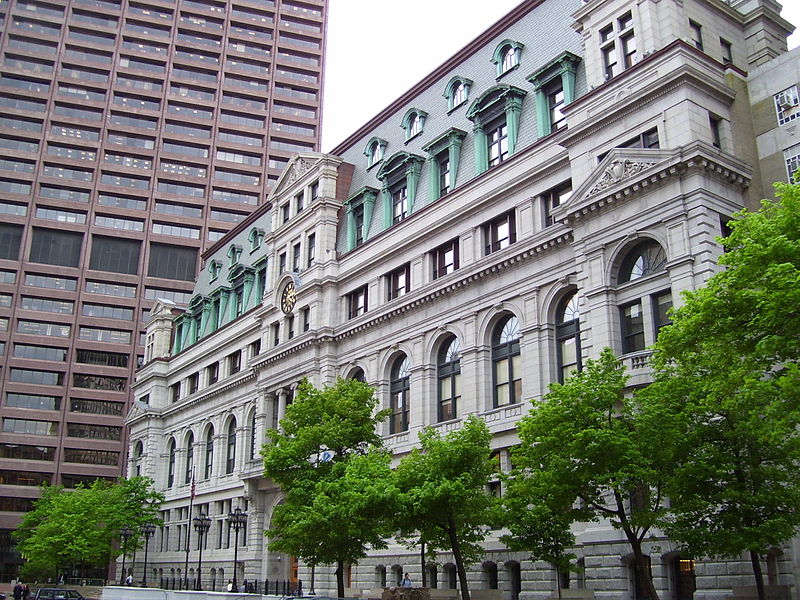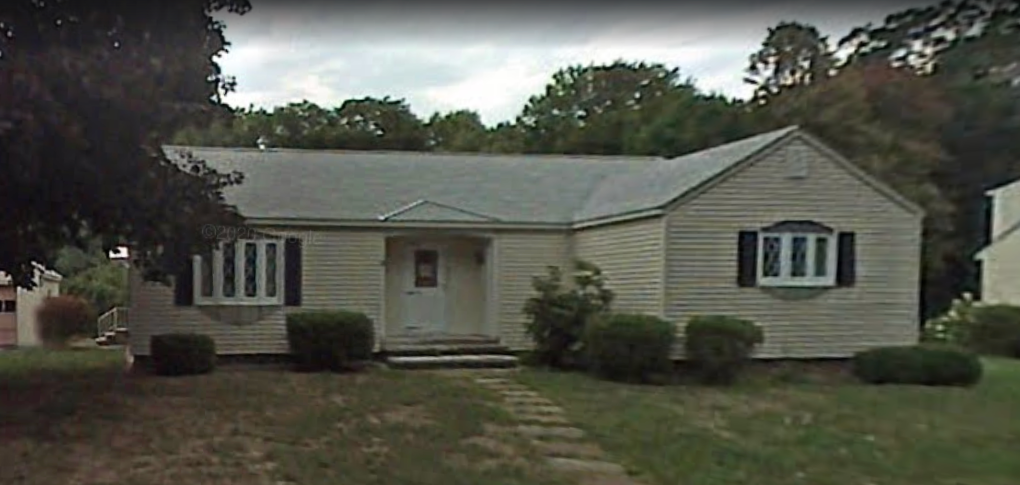Fair Ruling in Frechette v. D’Andrea: Use and Occupancy Payments May Not be Waived Under Indigency Statute
. Posted in News - 0 Comments
By Kimberly Rau, MassLandlords, Inc.
Use and occupancy payments may not be waived under the state indigency statute during an appeals process, the supreme judicial court ruled in 2024 in the case Frechette v. D’Andrea. This means that renters who appeal a summary process ruling may still be required to make use and occupancy payments as a condition of keeping their appeal active.

“You don’t get to live for free” – SJC rules that use and occupancy payments may not be waived or paid by the commonwealth under the indigency statute. (Image: sa swampyank-wikimedia)
The decision came after attorneys for a defendant in a summary process case tried to get their client’s use and occupancy payments waived along with an appeal bond. The attorneys stated the payments were acting as a barrier to their client’s ability to access the courts.
Frechette v. D’Andrea: A Long Road to Eviction
In 2008, Dorothy Menzone purchased a property in Webster. According to court documents, Menzone’s daughter, Elizabeth D’Andrea, moved to that property in 2008 to help care for her mother. Menzone reportedly made all payments on the house until her death in March 2013. Following her mother’s death, D’Andrea did not make any mortgage payments, and the bank foreclosed on the property in 2019.
In December 2021, Edward A. Cianci and Raymond Frechette bought the foreclosed property from the bank. D’Andrea was still living on the property at that point, but did not make any rent payments to the new owners.
Cianci and Frechette brought a summary process case against D’Andrea in February 2022, and won. The housing court ruled in favor of the plaintiffs in March 2023. At that point, D’Andrea would have been living on the Webster property rent-free for at least 10 years.
D’Andrea appealed the decision. The housing court set up an appeal bond and ordered D’Andrea to pay Cianci and Frechette $1,275 in monthly use and occupancy payments as a condition of going forward with the appeal. D’Andrea was able to get her appeal bond waived under the state indigency statute, but the housing court refused to budge on the use and occupancy payments.
D'Andrea appealed the order, and the question of the use and occupancy payments under the indigency statute went before the Supreme Judicial Court.

Use and Occupancy Payments Only Mandated During Appeals
During an eviction, there are three ways a landlord may get their rent paid by court order.
During a regular (non-appeal) case, use and occupancy payments will only be ordered by the court if your attorney first makes a motion for them. Use and occupancy payments only become a legal requirement during an appeal.
After a case has been decided, an appeal may be filed. An appeal bond, as outlined in MGL Chapter 239, Section 5, is issued as a condition of keeping the appeal going.
During a regular appeals process, Section 5(c) requires a surety bond as a condition of the appeal moving forward. The renter will also be required to make use and occupancy payments to keep the appeal going.
If your renter appeals the summary process ruling, and they meet the state’s requirements for the indigency statute (see below), Section 5(e) allows the appeal bond to be waived. It is under this statute that D’Andrea’s attorneys argued that the ordered use and occupancy payments also should be waived.
SJC: The State Indigency Statute Covers Fees, but Not Use and Occupancy
The purpose of the state indigency statute (MGL Ch. 261, Section 27A) is to keep court costs, such as an appeal bond, from being a barrier for those seeking justice through the appeals process. “Extra fees and costs,” not including attorneys’ fees, may be waived, reduced or paid in full by the commonwealth.
Attorneys for D’Andrea argued that their client should not have to pay the use and occupancy costs herself, since making those payments was also a condition of the appeal moving forward. They said that the use and occupancy costs should be waived as she met the requirements for relief under the indigency statute, and the appeal bond had already been waived under those standards.
The SJC disagreed and sided with the housing court, stating that “… use and occupancy payments required of an indigent party under G.L. c.239, §5(e), may not be waived, substituted, or paid by the Commonwealth under the indigency statute because use and occupancy payments are not an ‘extra fee or cost’ as defined in the indigency statute.”
Further, the SJC noted, the defendant had not paid rent in years, and use and occupancy are payments that any defendant would have to make anyway in order to live in their home.
“You don’t get to live for free,” stated Chief Justice Scott Kafker at the hearing, adding that such payments are not specific to the appeals process. “Use and occupancy is not a fee or a cost, it’s to ensure payment. So again, you don’t live for free…even if you were not in this lawsuit, you would be paying your rent or paying your mortgage.”
A “Fair Balancing of Interests” Important when Constitutional Rights Conflict
The SJC also backed up the housing court’s decision to set use and occupancy at $1,275, noting that the payment amount is a “fair balancing of interests” between plaintiff and defendant.
This is an important point because one of the major issues of this case is whether you can deny someone an appeal because they can’t afford use and occupancy payments. If you don’t make your court-ordered payments, your case is dead in the water.
However, as Justice Kafker noted, there are two parties involved in this case. There are the new homeowners, who have real costs associated with owning the property, and who have not seen a dime of rent since they purchased the house in late 2021. Then there is D’Andrea, who says her Social Security income is not enough to cover the use and occupancy payments.
When constitutional rights conflict, as they do here, the court must come up with a fair balance between the two parties’ interests. The SJC affirmed that this is what the lower court did when it set the use and occupancy payments, noting the owners’ costs and also that D’Andrea already had a poor track record with rent. She was unlikely to win her appeal, and she had already violated a previous court order to make use and occupancy payments.
The courts determined that while the payments of $1,275 may be unaffordable for D’Andrea, as her counsel claims, the amount is still below the property’s estimated $1,700 rental market value.
“We conclude that the ordered use and occupancy payment of $1,275 per month in this case was rational and represents a fair balancing of interests between the parties, even if it exceeds D'Andrea's ability to pay,” the ruling states.
Stay Out of Court Whenever You Can
This ruling is a small victory for landlords, but you should still try to stay out of court whenever you can.
Eviction is time-consuming and expensive. Consider the timeline of this case. The plaintiffs bought the house, which was in foreclosure, in 2021. The resident of the house had not been paying the mortgage, and she did not start paying rent once she had landlords.
The landlords served a notice to quit in February 2022, approximately two months after they bought the property. In June 2022, the court ordered D’Andrea to make use and occupancy payments of $1,500, to begin in July 2022, but she did not. It took more than a year from the notice to quit for the court to ultimately rule in the landlords’ favor, in May 2023.
Counting from when they bought the property, that’s 17 months without a rent or use and occupancy payment. The SJC decision we’re writing about was made in June 2024, 13 months after that. Court records show that D’Andrea’s lawyers have filed for a motion of reconsideration, which may further prolong things.
And the actual appeal against the summary process judgment is still ongoing as well. Presumably, as the use and occupancy payments are still being appealed, Frechette and Cianci are still paying taxes, mortgage and upkeep on a home they are not allowed to occupy or rent out, and are not receiving rent for.
We don’t know if D’Andrea was offered any sort of incentive to move out when Frechette and Cianci bought the home, or if she would have been open to a cash for keys offer. We do know, from the SJC’s report, that when the court asked her what she felt would be a fair rent for the property, she declined to provide an answer.
Further, because D’Andrea told the court that her income comes from Social Security payments, she would be considered judgment proof by the state of Massachusetts. This means that her landlords will not be able to collect on any monetary judgment awarded them, unless something about D’Andrea’s situation changes in the future.
Conclusion
Whenever possible, stay out of court with your renters. Winning a summary process case takes a long time and may not result in your receiving any lost rent.
Issue a notice to quit and file your court process as a backstop to negotiation, but keep trying to negotiate something with your renters along the way. There are often other lawful ways to regain possession of your rental than completing a summary process. And, since the state now requires court mediation as a step in the eviction process, you may be able to come to an agreement with your renter before going in front of a judge.
However, when court is unavoidable, at least you know your tenants will (theoretically) have to pay use and occupancy if they appeal the judge’s decision.




